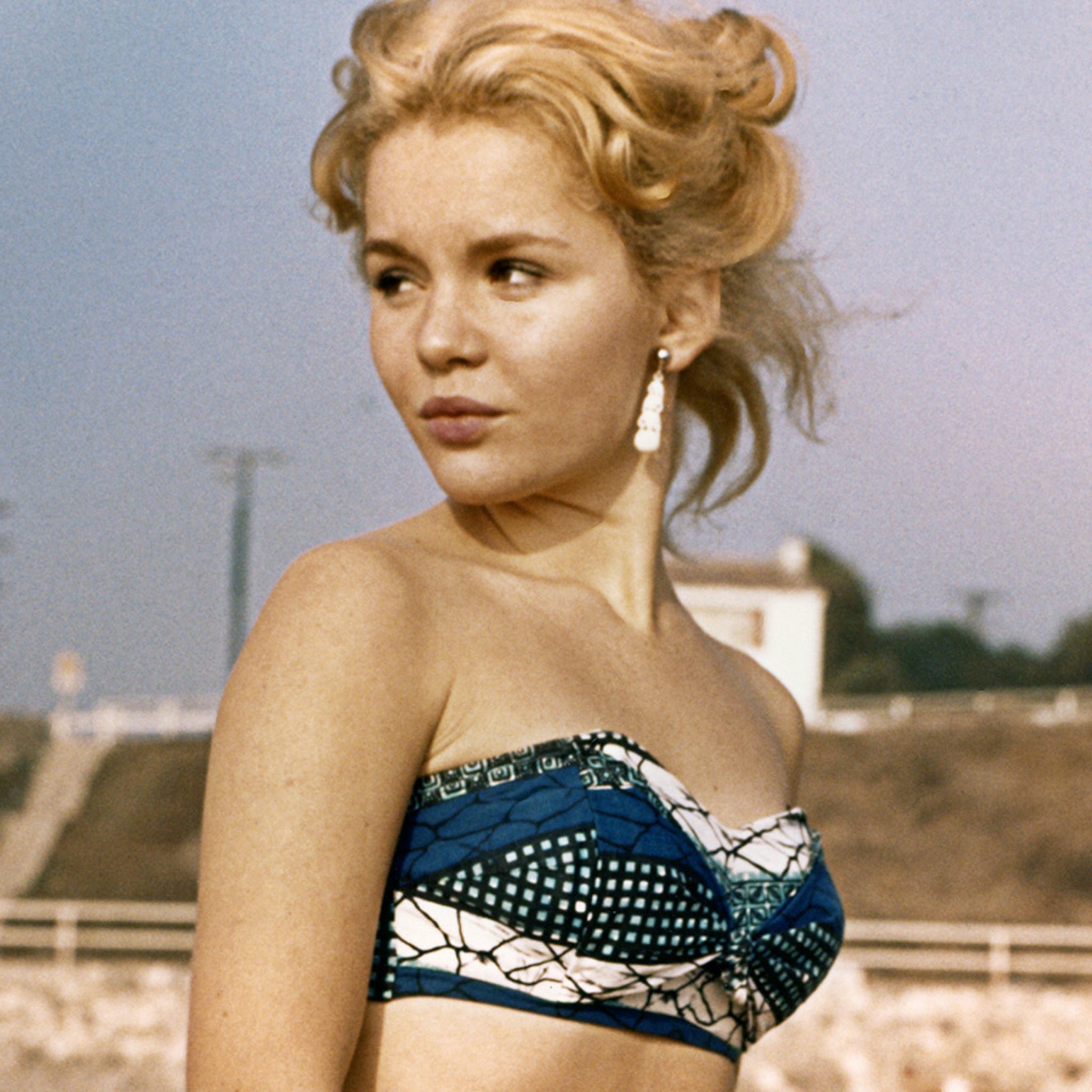She was the teenage dream with an adult’s weariness, a natural beauty who never chased fame, and one of the most quietly radical actresses of her generation. This is the story of Tuesday Weld — the star who walked away on her own terms.
In an industry built on bright lights and louder hype, Tuesday Weld is a name that lingers like a whispered legend. For some, she’s the breathless blonde of the 1960s — the ingénue in a sweater, the idealized American girl. But for those who truly watched her, Tuesday Weld was something else entirely: a defiant talent, a woman ahead of her time, and an actress who turned her back on stardom not out of failure, but out of choice.
To understand her story is to understand what happens when brilliance refuses to perform on cue.

A Starlet Before She Could Vote
Born Susan Ker Weld in 1943 in New York City, she became the family breadwinner at a painfully young age. Her father died when she was just four. By age nine, her mother — desperate for financial stability — began managing Tuesday’s modeling career. From magazine ads to acting auditions, Tuesday became a working child. Not a child actor — a working child.
She changed her name to Tuesday Weld before she even hit high school. By 12, she was in films. By 16, she was nominated for a Golden Globe for her role in The Five Pennies. And by 17, she was famous — and miserable.
The press loved her. Photographers adored her. But Tuesday Weld was always uncomfortable in the skin Hollywood tried to dress her in.
“I’m not good at being a starlet,” she once said. “I’m not good at playing the game.”

Blonde, Beautiful — and Misunderstood
In the early 1960s, Weld became synonymous with the sex kitten archetype. She starred opposite Elvis Presley in Wild in the Country (1961), exuded dangerous innocence in Bachelor Flat (1962), and stole scenes in films like The Cincinnati Kid (1965) and Lord Love a Duck (1966).
But she was no one’s pin-up fantasy. In interviews, she bristled at her fame, criticized the industry, and refused roles that might have made her a household name — including, allegedly, parts in Lolita, Bonnie and Clyde, and Rosemary’s Baby.
To Weld, fame was not a prize. It was a trap. “I do not ever want to be a huge star,” she said bluntly. “Fame means when your computer breaks, they send a limousine to take it to be fixed.”
She wasn’t trying to disappear. She just wanted control. And for a woman in the 1960s, that was a rebellious act.

A Career Built on Quiet Mastery
Though Weld never chased mainstream success, she delivered some of the most haunting and quietly brilliant performances of her era.
In Play It as It Lays (1972), based on Joan Didion’s bleak novel about Hollywood alienation, Weld’s portrayal of Maria — a woman unraveling in silence — was devastating. The performance earned her a Golden Globe nomination and remains one of her finest, if least remembered.
In Looking for Mr. Goodbar (1977), she played Diane Keaton’s troubled sister with such rawness that she received an Academy Award nomination for Best Supporting Actress.
Weld’s characters were often damaged, complicated, and emotionally unavailable — and she played them without a trace of vanity. There was no attempt to make them likable. Just real.
And that, perhaps, is why she never fit neatly into the Hollywood star system. She wasn’t interested in being beloved. She was interested in being honest.

The Actress Who Walked Away
By the 1980s, Tuesday Weld began to pull away from Hollywood. She appeared occasionally — in Michael Mann’s Thief (1981), a few TV films, and independent projects — but her pace slowed. She never announced a retirement. She simply… stepped back.
Some mistook it for fading. But in truth, it was an exit. Quiet, clean, unapologetic.
She married and divorced, raised a son (Patrick, with actor Dudley Moore), and largely avoided the spotlight. While other actresses fought for comebacks or clung to the roles they were offered, Tuesday Weld became a kind of ghost star — forever frozen in the amber of her early work, yet always moving just out of reach.

A Legacy in the Shadows — and That’s the Point
Today, Tuesday Weld isn’t quoted often in retrospectives or regularly name-dropped by modern actresses — but she should be. Because what she did was rare.
She gave Hollywood a taste of true talent. She gave it truth wrapped in beauty, steel inside softness. And then she said: no more.
She was never forgotten, just quietly revered. The cult of Tuesday Weld doesn’t shout — it lingers, in midnight film screenings, in whispered admiration from cinephiles, in the performances of actresses who may not even know they’re echoing her.
Her legacy isn’t in blockbuster totals or magazine covers. It’s in the depth of the roles she dared to take — and the bigger ones she dared to turn down.
Tuesday Weld didn’t vanish. She chose silence in an industry built on noise.
And in doing so, she reminded us that mystery is its own kind of power.